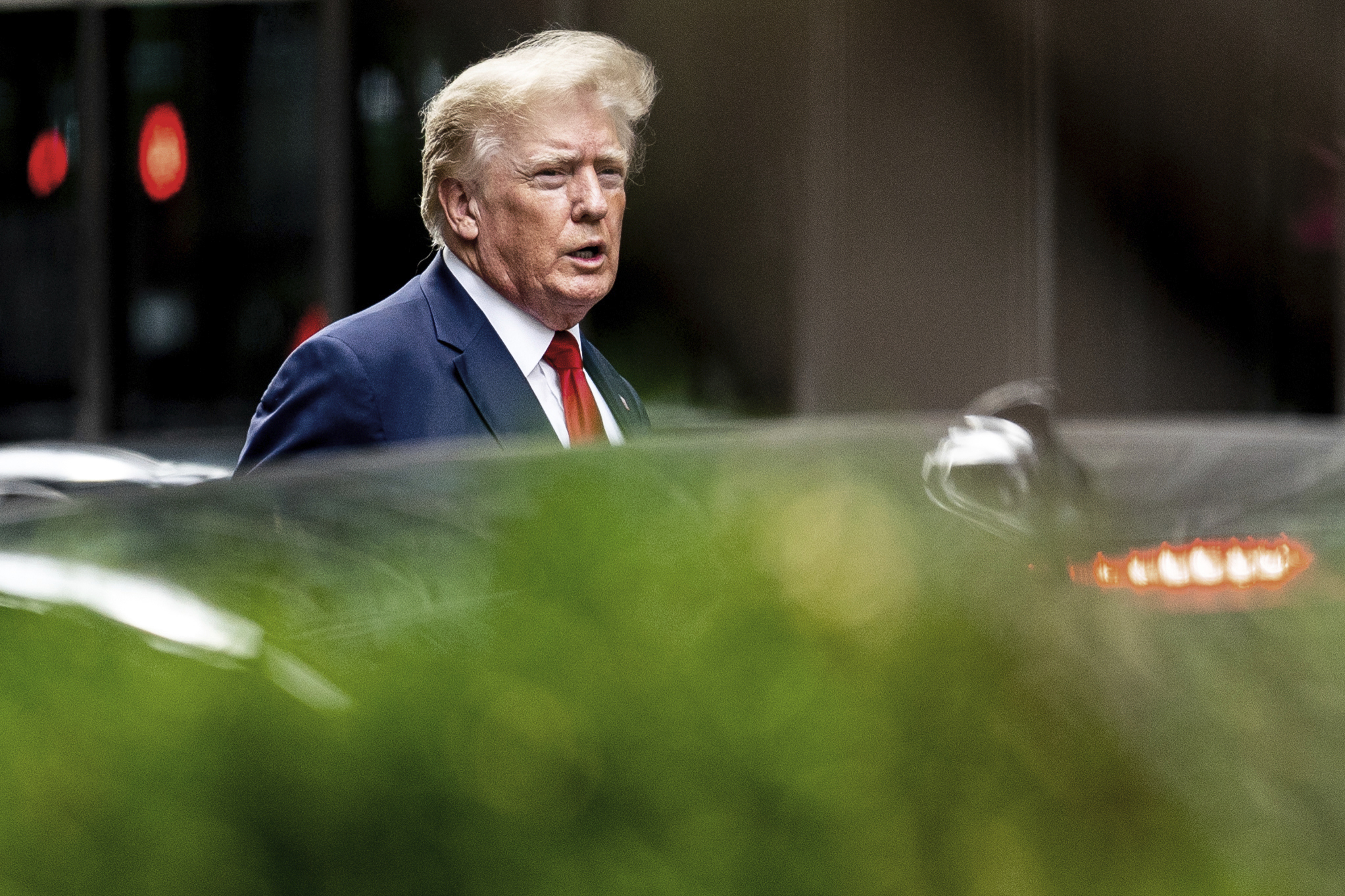
The following two weeks are set to be a hiatus that was scheduled when the grand jury was first convened in January, the person said.
A spokesperson for the Manhattan district attorney’s office declined to comment.
There is no official deadline for bringing an indictment against Trump, although there were indications in recent weeks that the grand jury’s activity was nearing a vote, particularly when prosecutors offered Trump the chance to testify before the panel. That is typically one of the final steps of a criminal investigation. Trump declined the invitation.
Shortly thereafter, Trump predicted on social media that he would be arrested, citing news reports, and encouraged his supporters to protest any criminal charges against him.
Prosecutors are examining Trump’s alleged role in a $130,000 payment that was made to adult entertainer Stormy Daniels, who said she had an affair with the former president. He has denied the affair and any wrongdoing associated with the payment.
Federal prosecutors, who charged Trump’s former lawyer Michael Cohen with crimes connected to his facilitation of the payment to Daniels, said in court filings that the Trump Organization falsely accounted for reimbursement payments made to Cohen as legal expenses.
Manhattan prosecutors could construct their case around a charge of falsifying business records, which is the type of case that can take as little as one day to present to a grand jury or as long as a year and a half, said Karen Friedman Agnifilo, who was the chief assistant district attorney under Bragg’s predecessor, Cy Vance. “There’s truly no way to predict,” she said.
Because the Trump case involves a large number of witnesses and the central one, Cohen, is a convicted felon, it creates a complicated set of evidence that can take time to present to the grand jury, said Jamie Pukl-Werbel, a former Manhattan assistant district attorney who teaches at Seton Hall law school. “You shouldn’t read anything into the grand jury not hearing the case for another couple weeks,” she said.
One element of the case that could be affected by timing is the statute of limitations. To prosecute false business records as a felony, prosecutors generally would have to bring charges within five years from the final act of falsification. But that deadline can be extended in some circumstances — including if a defendant lived out of state during the period in question, as Trump did while he occupied the White House.
Jeremy Saland, a former Manhattan assistant district attorney, said he didn’t think prosecutors would be cutting it close enough that a grand jury break would have a material impact. “They’re not doing this at the stroke of midnight,” he said of prosecutors. “They have built in the time.”
Aside from any legal ramifications, the delay could influence public opinion. “Trump’s actions and rhetoric over the last 10 days are his standard playbook — move first to shape the narrative and public perception,” said Anthony Coley, a former spokesman for the Justice Department. “It’s a particularly useful tactic in legal communications because prosecutors are bound by grand jury secrecy rules.”
